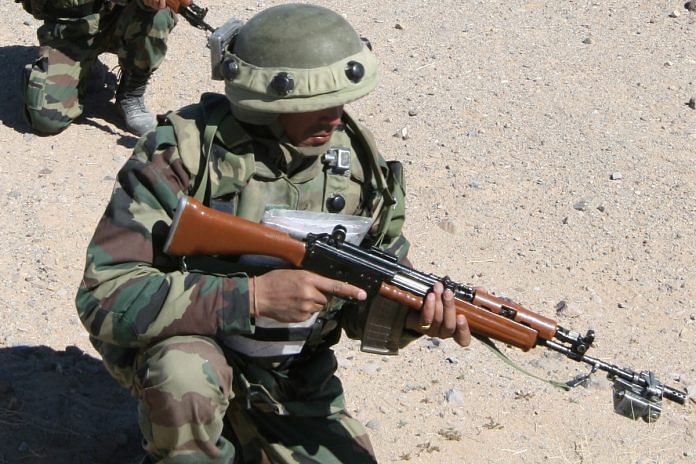What India needs to do is ensure that Pakistan’s ‘high effect low cost war’ becomes a ‘low effect high cost war’.
A year ago on the night of 28/29 September, India demonstrated an unprecedented politico-military will, executing surgical strikes across the line of control in Pakistan Occupied Kashmir. Nearly a 100 commandos of the elite Special Forces of the Parachute Regiment destroyed terrorists housed in launch pads waiting to infiltrate across the LoC, a punitive strike post the terrorist attack on Uri military camp.
The strategic signalling was clear – India had exhausted its strategic patience and Pakistan can no longer perpetrate terrorist attacks with impunity, without the fear of retaliation. The surgical strikes triggered the imagination and interests of all Indians, instilling a sense of pride in the nation state as it displayed a strategic resolve to raise the costs for Pakistan’s ‘low cost high effect’ proxy war. The surgical strikes were also endorsed by most of the world community, in particular the neighbouring countries.
The media hype raised the expectations creating an impression among the people that the surgical strikes will end terrorism. Now, a year down the line, there are more than a few who are questioning the outcome of the surgical strikes, given the increase in violence levels in J&K and a spike in ceasefire violations.
The context and the construct of the surgical strikes needs a pragmatic analysis. Indian response to Uri challenged the common belief that India will continue to suffer cross border terrorism by Pakistan in perpetuity for fear of escalation. Terrorism and the proxy war is a state policy driven by the Pakistan army “bleeding India with a thousand cuts” successfully carried out for nearly three decades.
The domestic, political and economic relevance of the Pakistan army is based on an anti-India narrative. Pakistan has waged a war against India in the sub-conventional domain resorting to the rhetoric of use of nuclear weapons, in particular its recently acquired Nasr-Tactical Nuclear Weapons. The narrative was based on a belief that India will never respond for fear of escalation to the nuclear domain. The surgical strikes challenged this belief hitting targets protected by the Pakistan army.
The surgical strikes are indicative of a risen and responsible India, capable of protecting and projecting its core interests, synergising all elements of national power – political, diplomatic, military, economic and cultural. The strikes raised the cost for Pakistan as evident from the redeployment of certain elements of the military, relocating terrorist camps and providing them with protection by the army.
More importantly the surgical strikes have created a strategic dilemma for Pakistan, shaking its army out of its comfort zone. It is the first time that a Pakistani Prime Minister was critical of the Army Chief, blaming him for isolating Pakistan. Unlike the 26/11 Mumbai terrorist attacks and many others, Pakistan will now ensure that these terrorist attacks do not cross India’s threshold for fear of retaliation.
What India needs to do is ensure that Pakistan’s ‘high effect low cost war’ becomes a ‘low effect high cost war’ and that is exactly what the surgical strikes have achieved. There are many contributors and indicators that Pakistan will continue to wage the proxy war albeit at a higher cost and caution now.
Pakistan army chief General Bajwa in a departure from the past has mooted a resolution to the Kashmir issue through “political and diplomatic” means. The US has been openly critical of Pakistan’s support to terrorist organisations. China too, for the first time has equated Lashkar-e-Taiba and Jaish-e-Mohammed with global terror groups Islamic State and al-Qaeda, endorsing India’s counter cross-border terrorism. The surgical strikes are a game changer and Pakistan will be subjected to more such strikes as and when it crosses the Lakshman Rekha.
The author was former DGMO and Colonel of the Para regiment. He is currently the Director of CENJOWS – the center of joint warfare studies, the official think tank of the tri services.
Also read: Surgical strikes had great propaganda value, but has only made things worse
Also read: Despite lack of details, surgical strikes signalled Modi’s aggressive diplomacy



